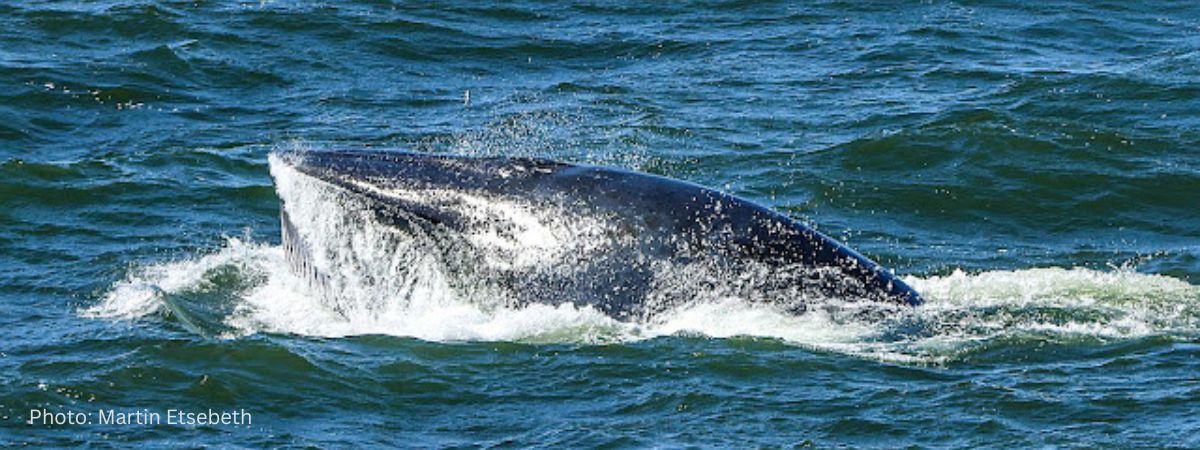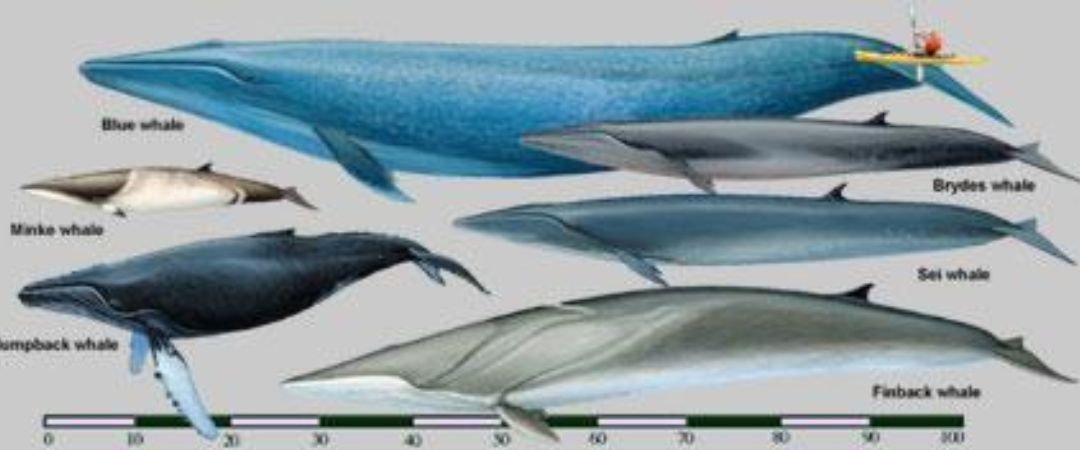Bryde's Whale - a baleen whale around 20 tonnes of awesomeness !
What’s in a name?
Bryde’s (pronounced “broodus) whales are named after a Norwegian, John Bryde, who, in 1912, helped construct the first modern South African whaling factory in the early 1900s.
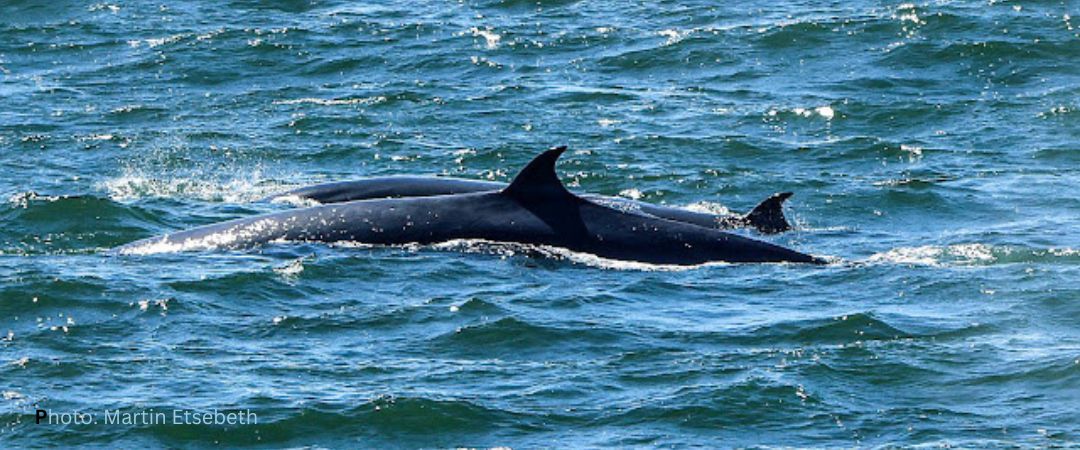
PHYSICAL DESCRIPTION:
Bryde’s whales are rorquals (whales with a dorsal fin and 40-50 long throat grooves on the lower side of their body) and are slim and streamlined. This whale has three ridges running from the tip of its snout to the blowholes. Like other baleen whales, they have 2 blowholes. Their spout is 3-4m high single vapour.
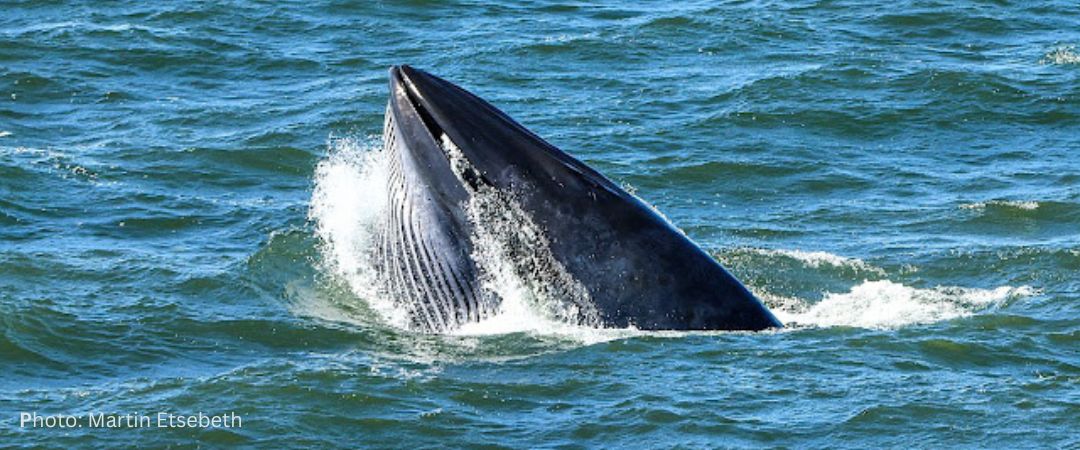
COLOUR:
Bryde’s whales have a bluish-grey body with white on the underside. Some of them have dark grey or almost white scars that may be caused by bites of lampreys (fish that attach themselves to the skin and bore into the flesh of some whales.
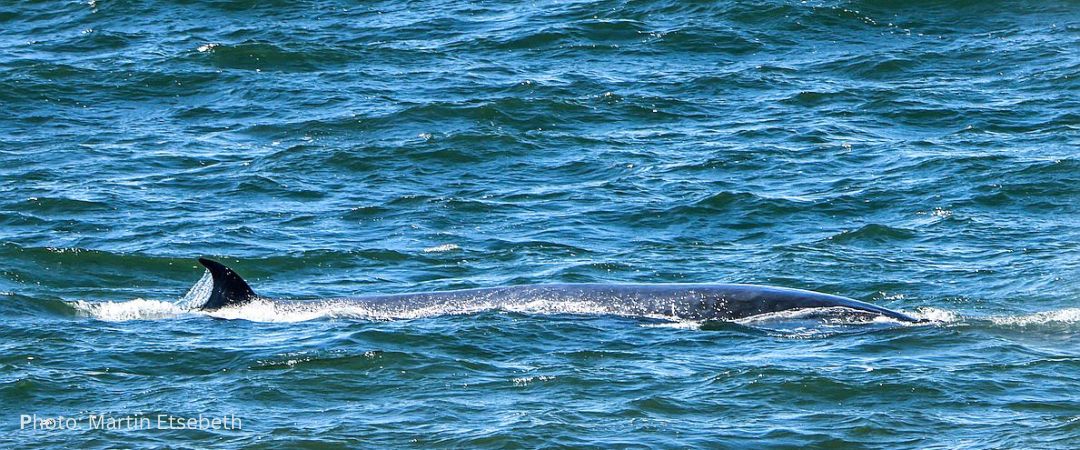
FINS & FLUKES:
THE pectoral (side) fins are relatively short (only about 10% of the body length) and pointed at the tips The Bryde’s whale dorsal fin is short and located rather to the back of its body, close to the tail fluke. Bryde’s Whales move slow, 2- 7 km/ph. but can swim as fast as 20-25km/hr.
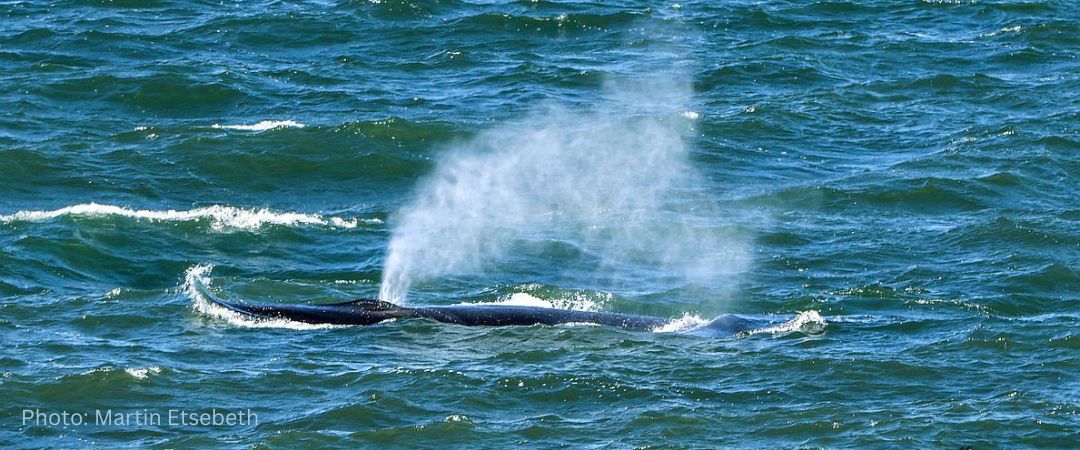
FEEDING:
Bryde’s whales are baleen whales, meaning they have a series of fringed overlapping plates hanging from the upper jaw where the teeth would be. The plates are made from keratin, the same material as our fingernails. Bryde’s Whales have 250-350 baleen plates. The fringe is stiff and coarse and adapts well to their favorite food, copepods. In this area they are inshore, within 20 miles from the coast, and are seen throughout the year It is common to see Bryde’s whales feeding in patches of sardines or anchovy, especially in summer. They consume about—600 kg fish per day.
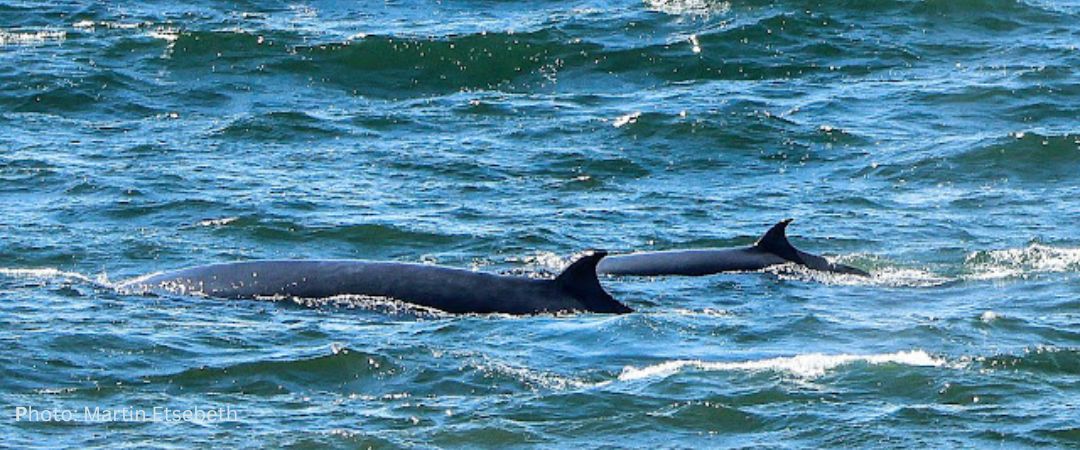
MATING & BREEDING:
Bryde’s whales are solitary animals usually in small groups of 2-3. They reach sexual maturity only in about 7-10 years, with a 12-month gestation period, and then nurse the calves for about 6 months.
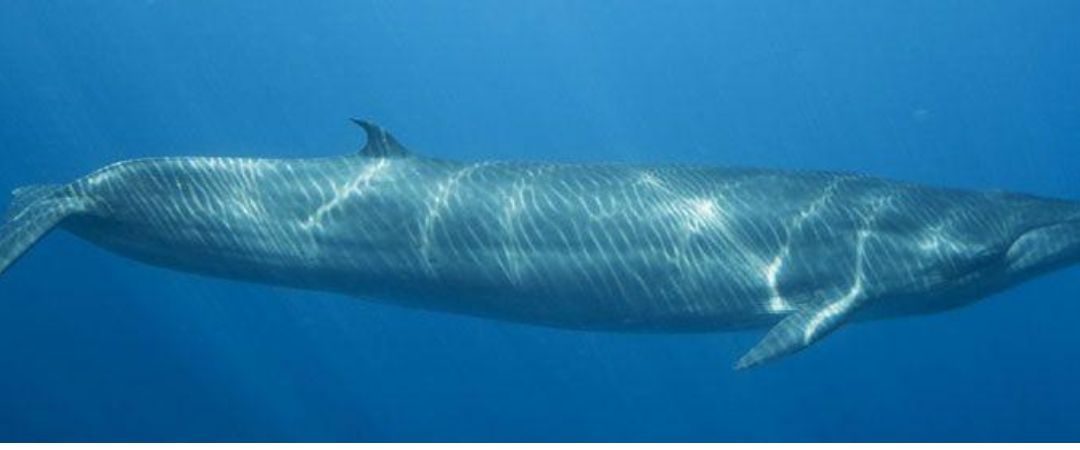
Call us and schedule your listing today! Contact Us
Copyright © 2025 Hermanus Online Magazine. Web Development by Jaydee media.

